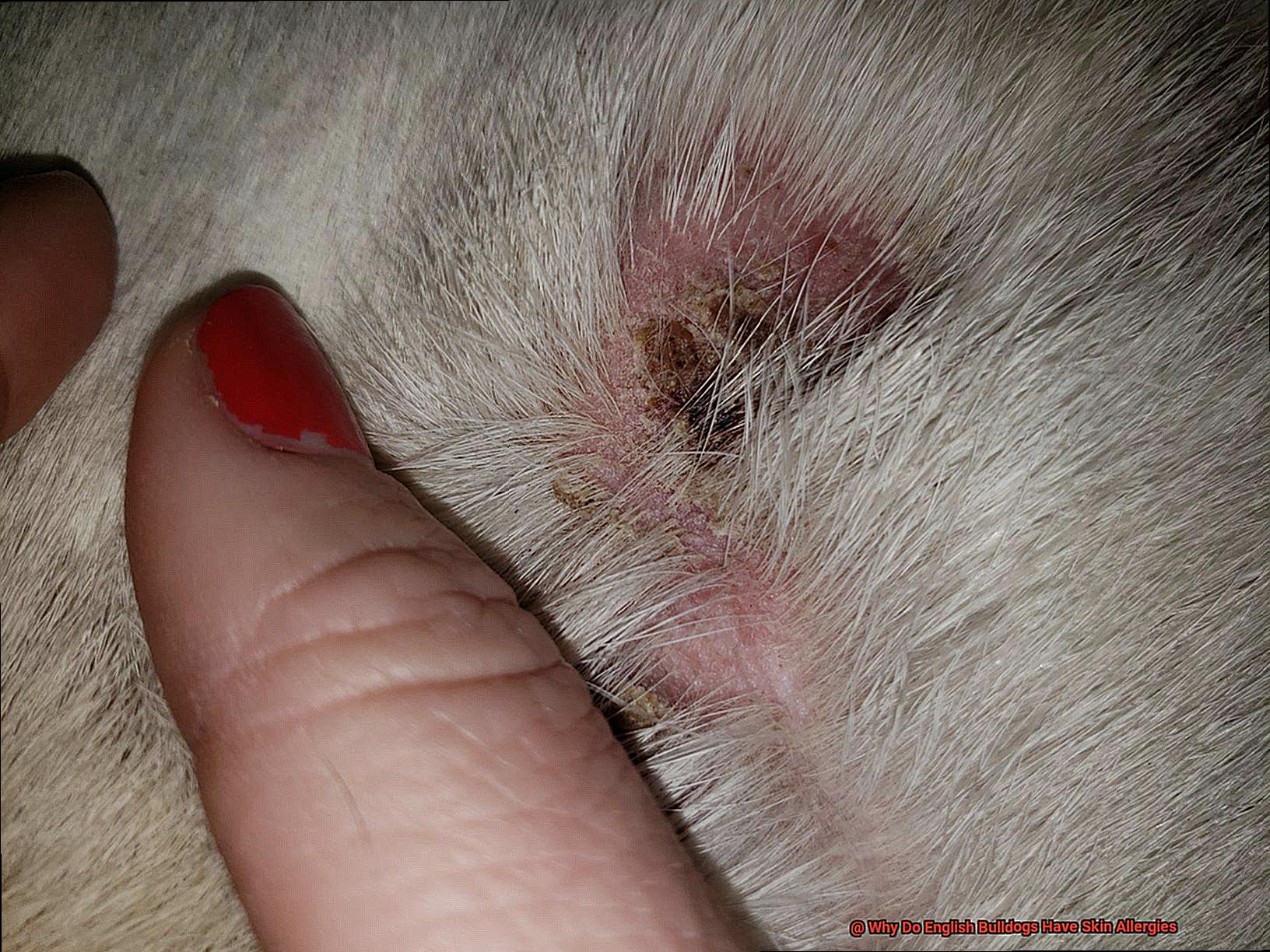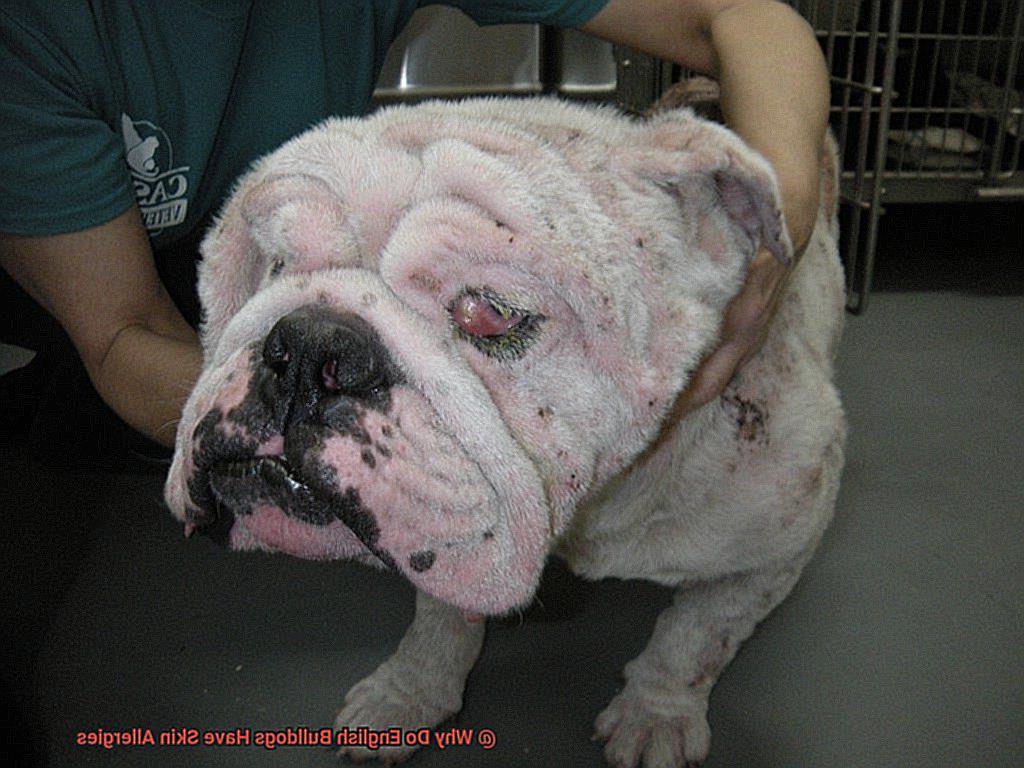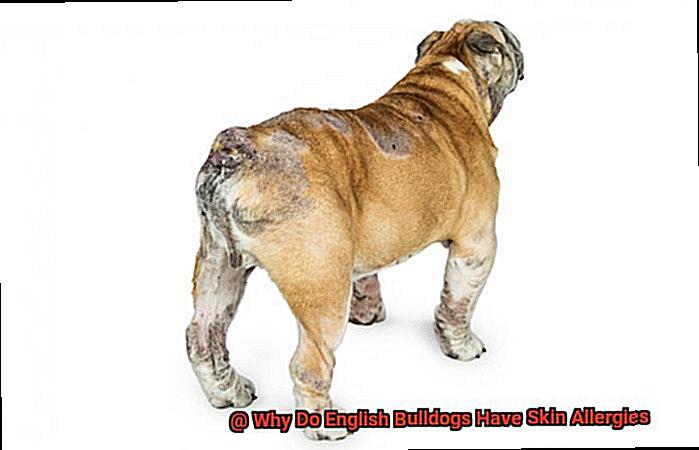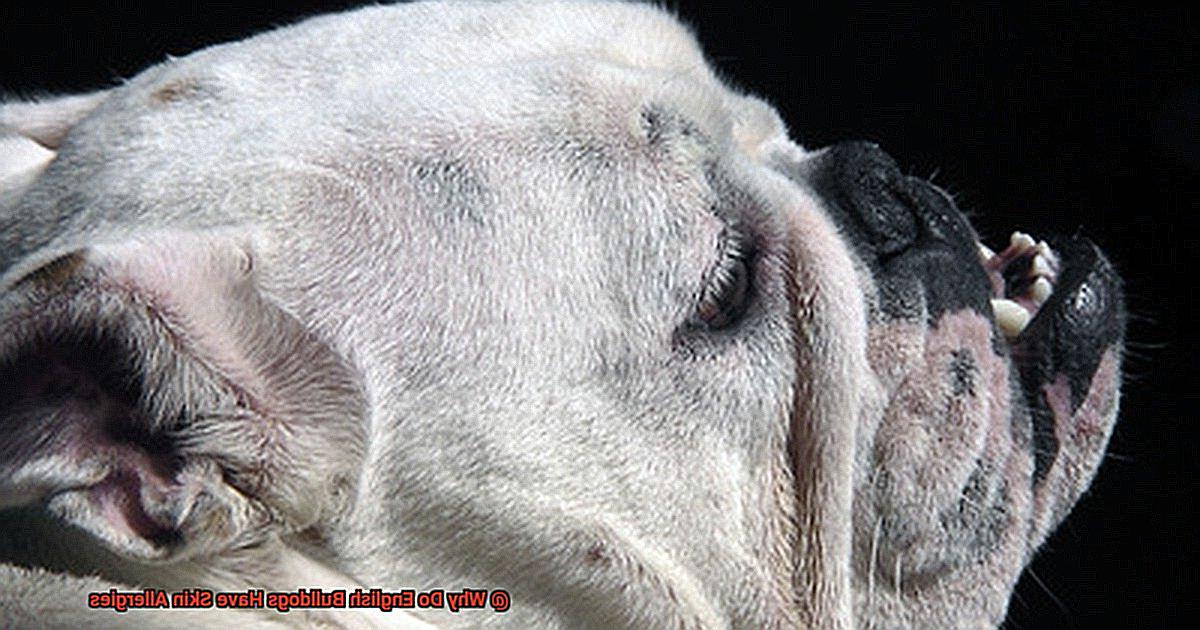Why Do English Bulldogs Have Skin Allergies?
Do you have an English Bulldog with skin allergies? You’re not alone. This breed is more prone to skin allergies than many other breeds. In this blog post, we’ll explore the root of these allergies and provide tips on how to manage them.
We’ll also discuss some of the most common allergens that can cause allergic reactions in English Bulldogs.
If you’re looking for answers about why your pup has skin allergies, read on for more information.
2. What are English Bulldogs Most Allergic To?
Contents
- 1 2. What are English Bulldogs Most Allergic To?
- 2 Common Allergens for English Bulldogs
- 3 Symptoms of Skin Allergies in English Bulldogs
- 4 Diagnosing Skin Allergies in English Bulldogs
- 5 Treatment Options for Skin Allergies in English Bulldogs
- 6 Diet and Nutrition for English Bulldogs with Skin Allergies
- 7 Home Remedies for Treating Skin Allergies in English Bulldogs
- 8 When to Call the Vet for Skin Allergy Issues in English Bulldogs
- 9 Conclusion
English Bulldogs are beloved for their endearing personalities, but unfortunately, they are prone to allergies due to their short muzzles and sensitive skin. Common allergens that affect English Bulldogs include pollens, dust mites, mold, dander, and certain foods.
Other environmental factors like temperature changes, humidity levels, and air pollution can also trigger allergies in these pups.

It’s important to identify the allergen causing your Bulldog’s symptoms and eliminate it from their environment. Signs of allergies in Bulldogs include itchy skin, redness, rashes, and excessive scratching.
To keep your Bulldog healthy and happy, make sure to vacuum regularly and wash bedding frequently.
If your bulldog’s signs persist or worsen despite your best efforts at home care, be sure to consult with a specialist.
Common Allergens for English Bulldogs
English Bulldogs are prone to a variety of allergens, so it’s important to be aware of the most common culprits. Dust mites, pollen, mold spores, fleas, and certain foods can all cause an allergic reaction in your Bulldog.
Dust mites are tiny bugs that live in carpets and furniture and can cause skin irritation when they come into contact with them. Pollen is released by plants and trees during certain times of the year, leading to allergic reactions in some dogs.
Mold spores are microscopic fungi found in damp areas such as basements or bathrooms and can also trigger an allergic response if inhaled.
Fleas are small parasitic insects that feed on the blood of animals, including dogs, which can lead to skin irritation due to their saliva. Finally, some foods like wheat, corn, soybeans, eggs, dairy products, and beef can also cause allergic reactions in certain dogs.
Symptoms of Skin Allergies in English Bulldogs
If you have an English Bulldog, it is important to be aware of the symptoms of skin allergies. These can include redness, itchiness, swelling, and hives on your pup’s skin. Additionally, hair loss, scabs, bumps, and crusty patches are all signs to look out for. In a more severe allergic reaction, your bulldog may also experience vomiting or diarrhea.
It is essential to understand what can trigger these allergic reactions in order to prevent them from occurring in the first place. Allergens such as pollen or dust mites in the environment or food allergies such as dairy or wheat can cause these reactions. Therefore, it is important to pay close attention to your bulldog’s diet and environment.
If you suspect that your English Bulldog has a skin allergy, don’t hesitate to take them to the vet for a checkup. Your veterinarian will be able to determine what is causing the allergy and recommend the right treatment plan for your pup.
Diagnosing Skin Allergies in English Bulldogs
It’s essential to identify the condition in order to provide proper treatment and prevent future allergic reactions. Diagnosing skin allergies in English Bulldogs is a complex process that requires close observation and testing by a veterinarian.
Several methods can be used to detect skin allergies. Skin scrapings involve taking small samples of the dog’s skin and examining them under a microscope for mites or other parasites.
Blood tests are used to detect antibodies that may indicate an allergic reaction. Intradermal skin testing involves injecting small amounts of potential allergens into the dog’s skin and observing for reactions.
If your furry friend is suffering from itchy, irritated skin, make sure to visit the vet for a proper diagnosis and treatment! Accurately diagnosing skin allergies in English Bulldogs is key to providing appropriate care and keeping future allergic reactions at bay.
Treatment Options for Skin Allergies in English Bulldogs
Many English Bulldogs suffer from allergies, which can cause discomfort and irritation. Fortunately, there are many treatment options that can help reduce symptoms and keep your pup feeling their best.
Common treatments for skin allergies in English Bulldogs include antihistamines, topical creams, and shampoos.
Steroids may also be prescribed to reduce inflammation and itching. If food allergies are suspected, a veterinarian may recommend an elimination diet or hypoallergenic diet to help identify potential allergens.
Environmental allergens can also trigger reactions in your pup, so it’s important to keep them away from areas with high pollen counts or other triggers.
Additionally, regular bathing with a mild shampoo will help reduce the itching and irritation caused by allergens. In some cases, allergy shots may be recommended if the cause of the allergy is known.

If your English Bulldog suffers from skin allergies, don’t hesitate to talk to your vet about the right treatment plan for them.
Diet and Nutrition for English Bulldogs with Skin Allergies
It’s important to ensure their diet is tailored to help alleviate their symptoms. The best way to do this is to provide a diet that is low in allergens and high in nourishing foods.
This means avoiding grains, dairy, and certain proteins and instead opting for fresh fruits and vegetables as well as high-quality proteins such as fish, eggs, and lean meat.
Additionally, healthy fats such as olive oil or coconut oil should be included in your Bulldog’s diet.

Supplements can also be beneficial; omega-3 fatty acids are particularly helpful in reducing inflammation and soothing the skin.
Home Remedies for Treating Skin Allergies in English Bulldogs
Natural oils such as coconut oil and olive oil are effective in soothing irritated skin and nourishing the coat. Oatmeal baths can also be used to reduce itching, redness, and inflammation caused by allergies.
Probiotics are another great way to boost your pup’s immune system and help them fight off allergens. Apple cider vinegar is known for its anti-inflammatory properties, which can reduce swelling and redness associated with allergies.
Other home remedies that may be beneficial include aloe vera, honey, turmeric, and chamomile tea.
When to Call the Vet for Skin Allergy Issues in English Bulldogs
Are you worried your English Bulldog is suffering from a skin allergy? If so, it’s important to call your vet as soon as possible. Symptoms of skin allergies in English Bulldogs can range from itching and redness to swelling and scabs or sores on the skin.
When you take your English Bulldog to the vet for a skin allergy, they will likely perform a physical exam and may recommend blood tests or an allergy test.
They may also test your dog for parasites or other infections. To help ensure the best outcome, make sure to provide all relevant information, including medical history, medications, diet, and lifestyle.
Once the doctor has diagnosed your English Bulldog with a skin allergy, they will be able to treat it with anti-inflammatory drugs or antibiotics. They may also recommend changes in diet and lifestyle that could help reduce allergies.
Also Read: French Bulldog Skin Problems
Conclusion
English Bulldogs are beloved for their endearing personalities, but they can be prone to skin allergies. Allergens like dust mites, pollen, mold spores, fleas, and certain foods can trigger an allergic reaction in your Bulldog.
To keep them healthy and happy, it’s essential to identify the allergen causing their symptoms and remove it from their environment.
Additionally, a diet that is low in allergens and high in nourishing foods can help with their symptoms too. With the proper care and attention to detail, you can ensure that your English Bulldog has a joyful life free of allergies.
If you think your pup is suffering from a skin allergy, don’t delay getting them to the doctor for a checkup.




